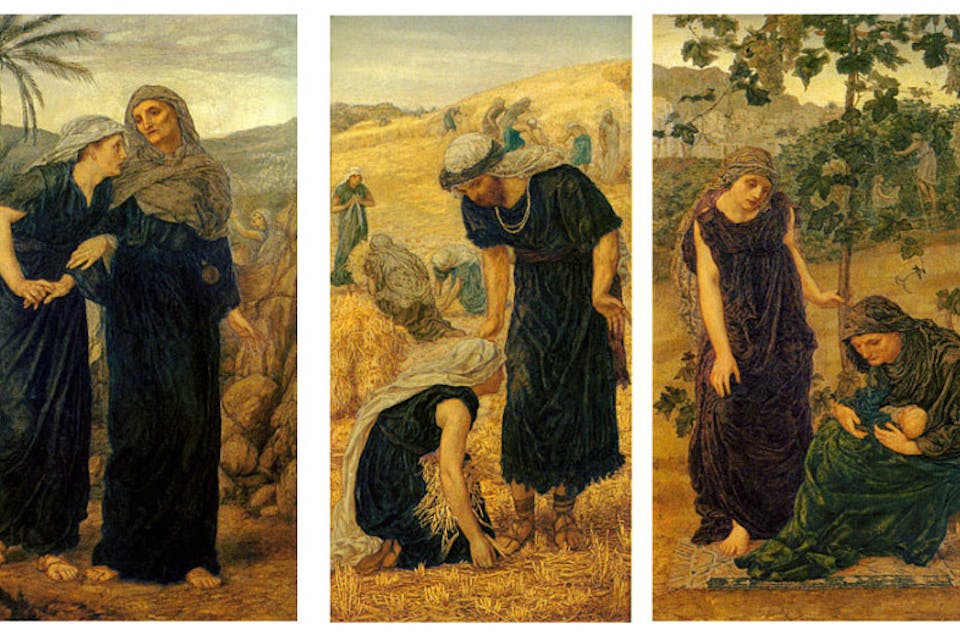
It’s impossible to describe the sound of good preaching in Hebrew. It’s not like the sonorous English of the King James Version, and it doesn’t have the soaring voice or the roars and whispers of preaching in the Baptist tradition. But in the hands of a master preacher and teacher, the Hebrew language yields colors, textures: the fields of the Bible take on shades of red and gold, and the women in the fields have names.
I once heard such a master, Rachel Keren, teaching the biblical book of Ruth to a group of seminary girls. I was the only man in the room; I can’t now remember why. She spoke about the dangers the widowed Ruth, a Moabite, faced on behalf of Naomi, her Jewish mother-in-law, when she went in the dead of night to lie in a harvest field in Judea. She was there to try to persuade Boaz, a cousin of Naomi’s late husband, to marry her and impregnate her with an offspring, thereby continuing the family line and incidentally saving both her and her mother-in-law from death by starvation.
So far, so convoluted. But Rachel Keren taught the Bible as if it were a slightly scandalous novel for young women. In fact a novel by the great and not so pious Victorian novelist Thomas Hardy (1840-1928), set not in rural England but dry, rural Judea. There the color of the land was red or yellow unlike England’s green and brown, but scandal, hostile fate, and an ever-present chorus of gossiping neighbors were facts of life just as much as in Hardy’s fictional Wessex. There was also in Rachel’s version a full sense of the looming danger of rape or other injury as the young widow picked her way among the sleeping shepherd boys to the only one who counted, the one she had to marry in order to put her family history right. As Rachel told it, this was a living and immediate story that could have happened anywhere (but not, she gave the girls to understand, just between us, in Jerusalem where she came from, and certainly not if the mother-in-law had had her wits about her).